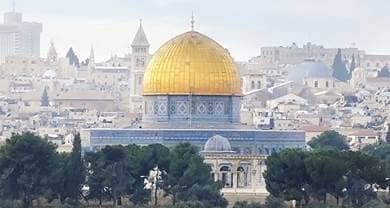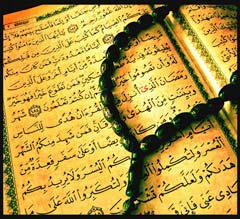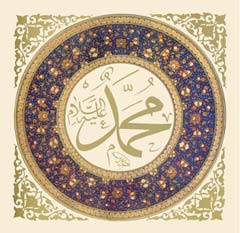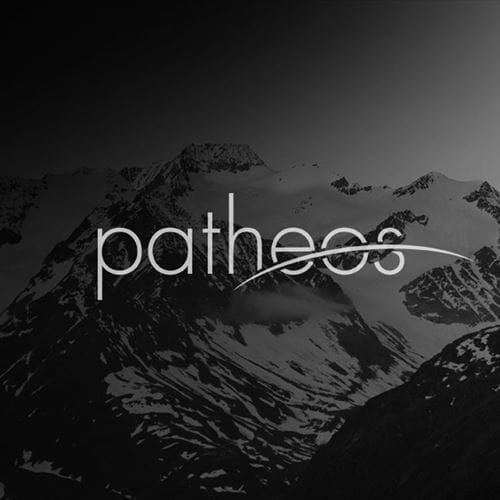- Trending:
- Forgiveness
- |
- Resurrection
- |
- Joy
- |
- Afterlife

RELIGION LIBRARY
Islam
Afterlife and Salvation
Muslims believe in the Day of Judgment and heaven and hell. A person's ultimate destiny, whether it is heaven or hell, depends on the degree to which that person intended and acted as God desires, with justice and mercy toward others. While it is impossible to know with certainty who will go to heaven and hell, believers, who had faith in the revelations that God sent through his prophets and lived according to those revelations, may hope for heaven. There is some evidence that nonbelievers can attain paradise, and even those who do evil but who are met at the end with God's grace and mercy may attain paradise.
 All of creation is journeying toward God, and the world will end on some unknown day. The Last Day has many names in the Quran, including the Day of Reckoning, the Day of Distress, the Day of the Gathering, the Great Announcement, and quite simply, The Hour. At the end of time, all people will be rewarded or punished according to how well they followed the instructions contained in God's revelations to his prophets. God will resurrect the dead, and each person will be judged directly by Allah according to his or her intentions and deeds. Islam teaches that God is more merciful than he is wrathful. Each person's deeds will be weighed in a balance, and if the evil deeds outweigh the good deeds, the person will be condemned to the eternal flame. If the good deeds outweigh the evil deeds, then the person will be rewarded with paradise. The Quran says that each person receives a book that contains an account of all of his or her deeds. If the book is placed in the right hand, the person is destined for eternal bliss. If the book is placed in the left hand, that person is destined for eternal flame.
All of creation is journeying toward God, and the world will end on some unknown day. The Last Day has many names in the Quran, including the Day of Reckoning, the Day of Distress, the Day of the Gathering, the Great Announcement, and quite simply, The Hour. At the end of time, all people will be rewarded or punished according to how well they followed the instructions contained in God's revelations to his prophets. God will resurrect the dead, and each person will be judged directly by Allah according to his or her intentions and deeds. Islam teaches that God is more merciful than he is wrathful. Each person's deeds will be weighed in a balance, and if the evil deeds outweigh the good deeds, the person will be condemned to the eternal flame. If the good deeds outweigh the evil deeds, then the person will be rewarded with paradise. The Quran says that each person receives a book that contains an account of all of his or her deeds. If the book is placed in the right hand, the person is destined for eternal bliss. If the book is placed in the left hand, that person is destined for eternal flame.
 Islam does not teach that humans need intercession, although some traditions have allowed that Muhammad might intercede with God on humanity's behalf. No one can know God, but at the same time, no one stands between the individual Muslim and God. If individuals find that they have sinned, they may sincerely apologize, and through remorse, receive forgiveness. The slate is clean, and they may begin again. This will likely happen many times in a life, because humans are not perfect. But on the Last Day, there are no excuses. God has sent many prophets to remind humans of their duty and to wake them up when they forget their dependence on God. As a result, the punishment on the Last Day is just.
Islam does not teach that humans need intercession, although some traditions have allowed that Muhammad might intercede with God on humanity's behalf. No one can know God, but at the same time, no one stands between the individual Muslim and God. If individuals find that they have sinned, they may sincerely apologize, and through remorse, receive forgiveness. The slate is clean, and they may begin again. This will likely happen many times in a life, because humans are not perfect. But on the Last Day, there are no excuses. God has sent many prophets to remind humans of their duty and to wake them up when they forget their dependence on God. As a result, the punishment on the Last Day is just.
The Quran says that terrible events will proclaim that the end is near. The people will gather at the bridge called Sirat. Sirat spans the fires of hell. Those bound for paradise will find the crossing easy. But for those bound for hell, the bridge will be as thin as a razor, and the condemned will fall into the flames. Hell, called Jahannam, is a horrifying inferno. The flames roar, scorching hot winds blow, and black smoke chokes the air. The skin of the suffering sinners is continually refreshed so that they will feel the pain of burning, with no relief. Their thirst is unquenchable, and yet they drink disgusting fluids in an effort to alleviate their suffering. Boiling water is poured over their heads. If they try to flee, iron hooks drag them back.
In contrast, paradise is a blissful garden where the blessed are at peace and are content. The conversation is pleasant, the wine has no ill-effects, and the food is endlessly abundant. The faithful, dressed in silk robes, relax on beautiful couches while servants tend to their every need. Men and women are attended by beautiful and handsome young members of the opposite sex. Choirs of angels sing in Arabic and all the bounties of heaven are enjoyed endlessly. No one is ever full. There are many descriptions of paradise in Islamic literature. The Quran describes it this way:
And God will guard them from the evil of that day and will cast on them brightness and joy; and their reward for their patience shall be Paradise and silk! reclining therein upon couches they shall neither see therein sun nor piercing cold; and close down upon them shall be its shadows; and lowered over them its fruits to cull; and they shall be served round with vessels of silver and goblets that are as flagons—flagons of silver which they shall mete out! and they shall drink therein a cup tempered with Zingabîl, a spring therein named Silsabîl! and there shall go round about them eternal boys; when thou seest them thou wilt think them scattered pearls; and when thou seest them thou shalt see pleasure and a great estate! On them shall be garments of green embroidered satin and brocade; and they shall be adorned with bracelets of silver; and their Lord shall give them to drink pure drink! Verily, this is a reward for you, and your efforts are thanked. (surah 76.11-22)
Study Questions:
1. Does one have to be a Muslim to obtain salvation? Why or why not?
2. What will happen on the Last Day? What events does the Quran teach will happen before it comes?
3. How is the afterlife, or paradise, described?










